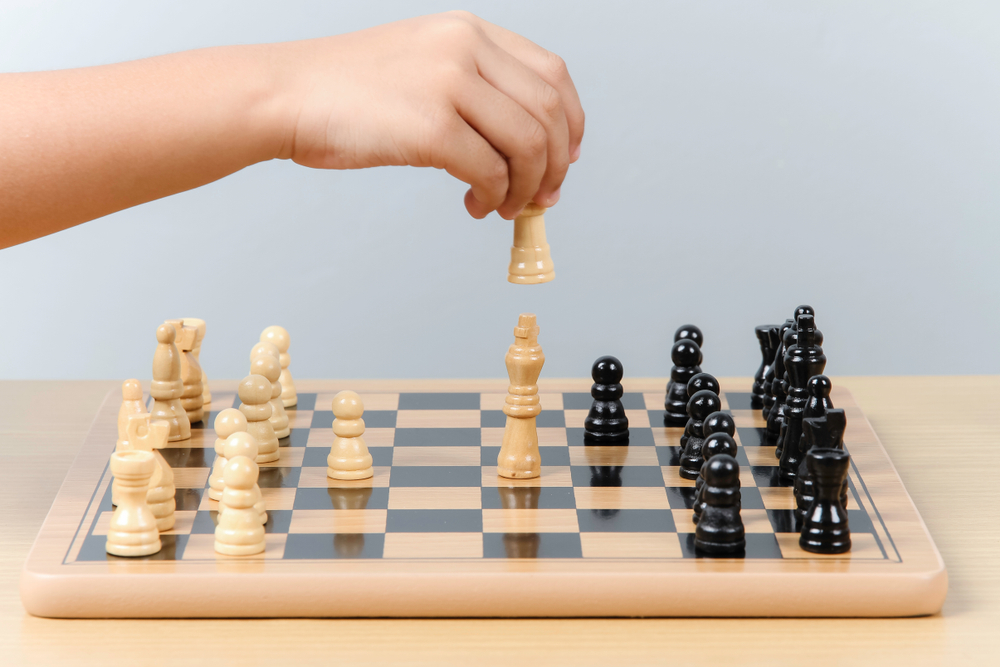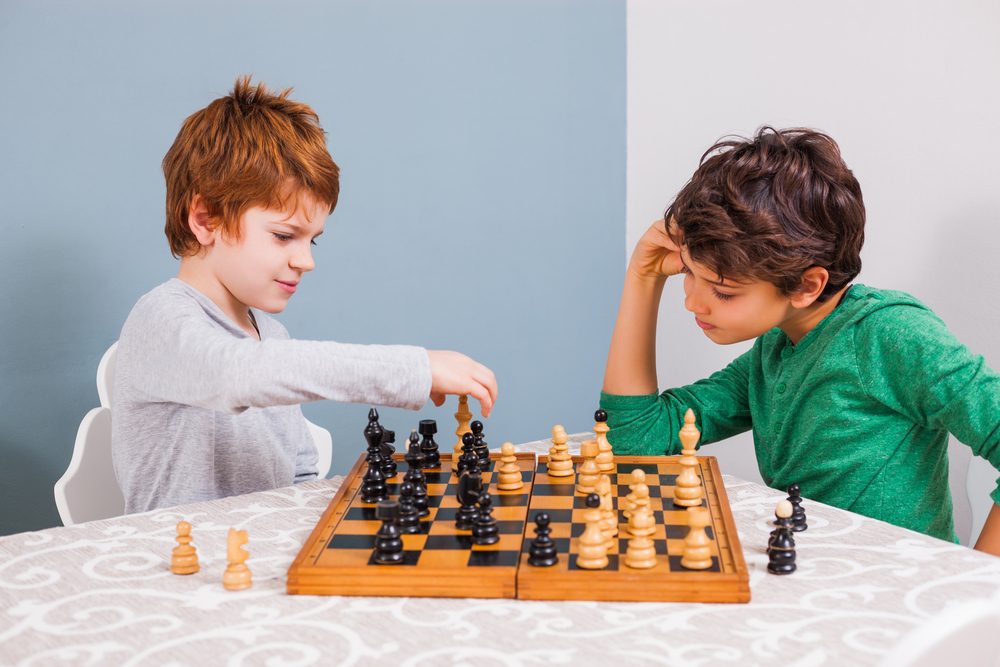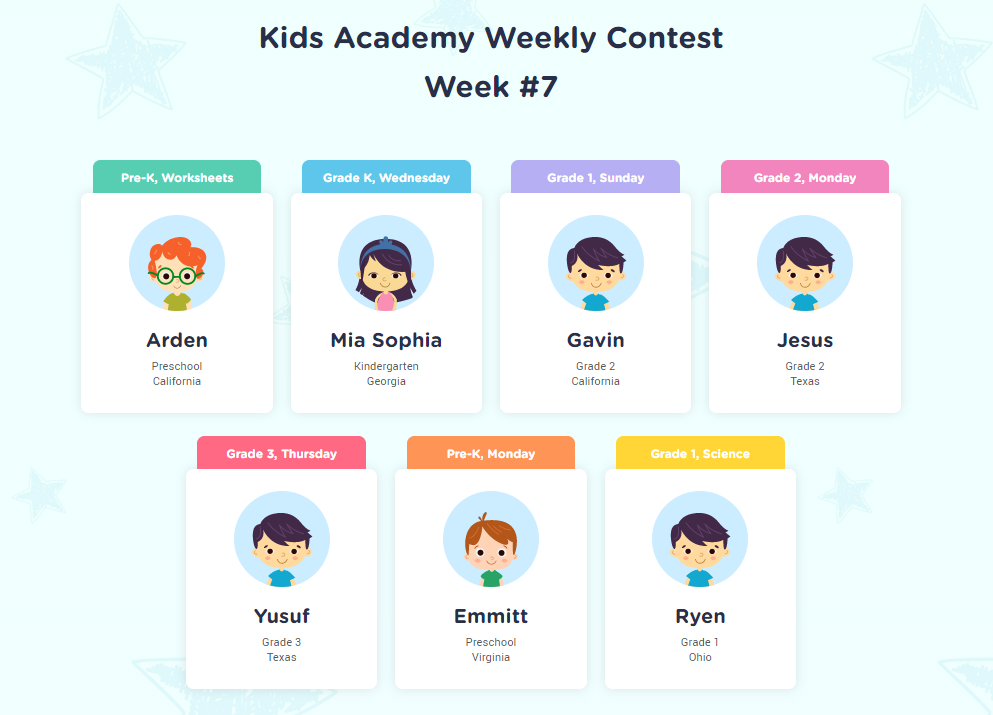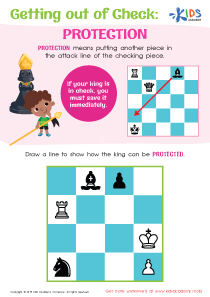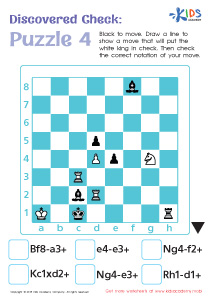Decision making skills Chess Worksheets for Ages 6-8
3 filtered results
-
From - To
Enhance your child’s decision-making skills with our engaging chess worksheets designed for ages 6-8. These educational worksheets combine fun chess challenges with valuable lessons, promoting critical thinking and strategic planning. Through interactive activities, children learn to forecast consequences and make calculated decisions, honing their analytical abilities in a playful environment. Ideal for beginner to intermediate young players, our worksheets transform the classic game of chess into a versatile tool for cognitive development. Encourage your child to play smart and grow their reasoning skills with our expertly crafted chess worksheets. Start their journey to becoming a strategic thinker today!
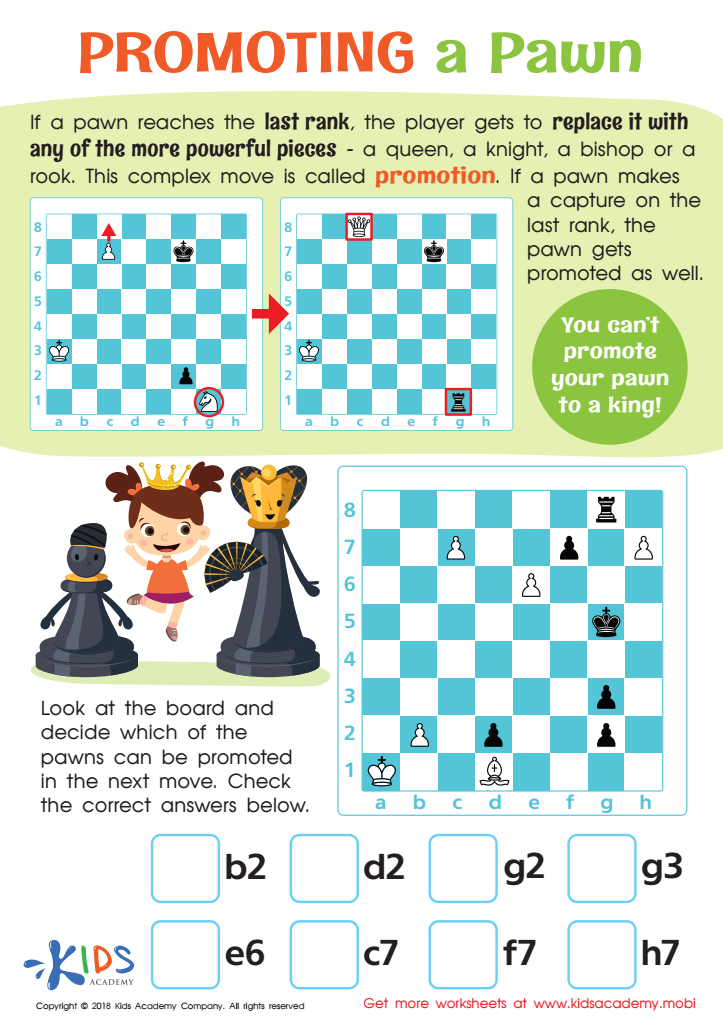

Promoting a Pawn Worksheet
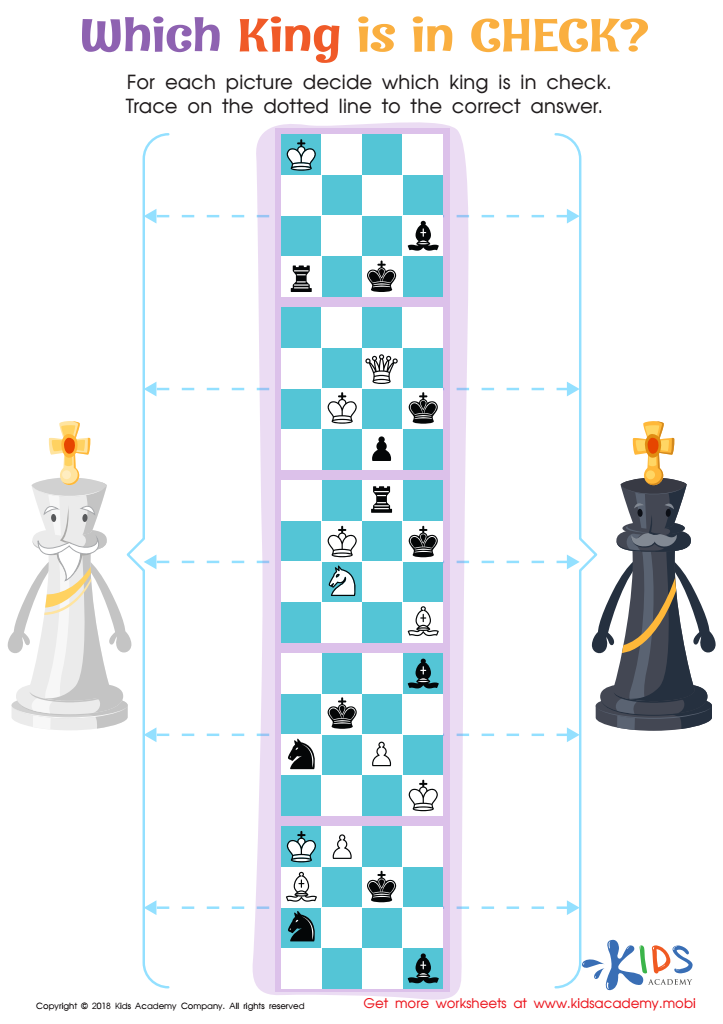

Which King is in Check? Worksheet
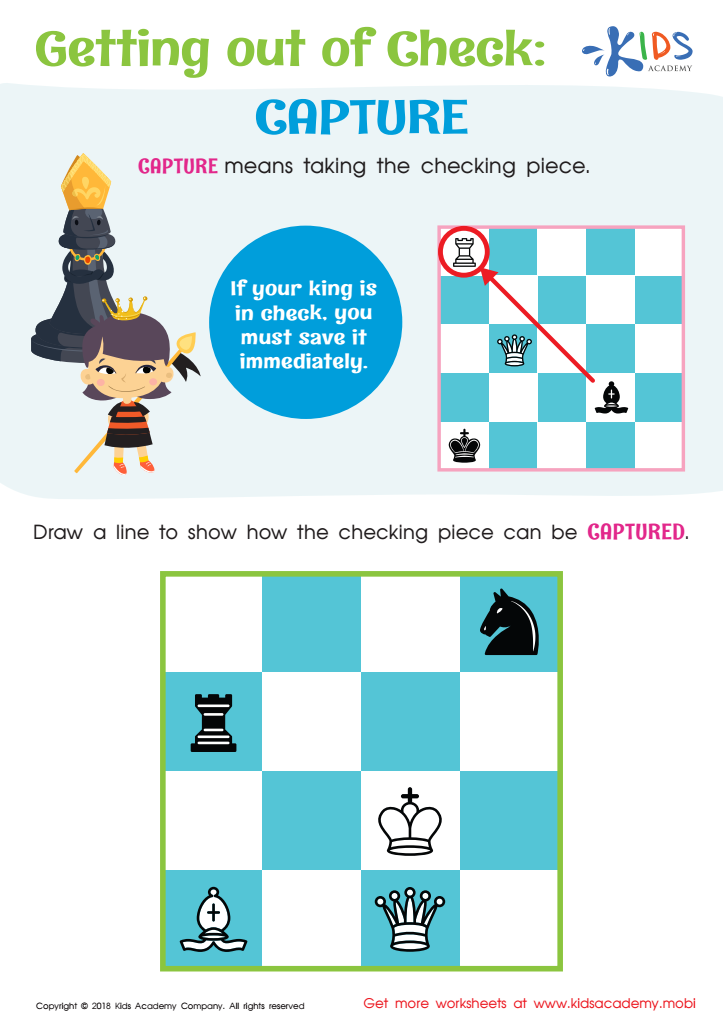

Getting out of Check: Capture
Cultivating decision-making skills in children aged 6-8 is crucial, and chess serves as an excellent tool for this developmental stage. Children at this age are developing critical thinking, focus, and patience, all of which are fundamental components of effective decision-making. Chess systematically teaches students to consider each move carefully, anticipate consequences, and think several steps ahead. These skills extend far beyond the chessboard, aiding children in everyday choices and problem-solving scenarios.
Moreover, playing chess fosters cognitive growth by enhancing memory, concentration, and spatial reasoning. When children learn to play chess, they also learn to recognize patterns and develop strategic thinking, learning from both their successes and mistakes. This iterative process encourages a growth mindset, crucial for lifelong learning and resilience.
Socially, chess can also be a powerful tool. It encourages healthy competition, sportsmanship, and respectful communication. When parents and teachers introduce chess, they provide kids with a constructive, screen-free activity that enhances interpersonal skills.
In summary, incorporating chess into the routine of children aged 6-8 helps build a solid foundation for intelligent, reflective decision-making, laying the groundwork for thoughtful, strategic, and successful future endeavors.

 Assign to My Students
Assign to My Students




